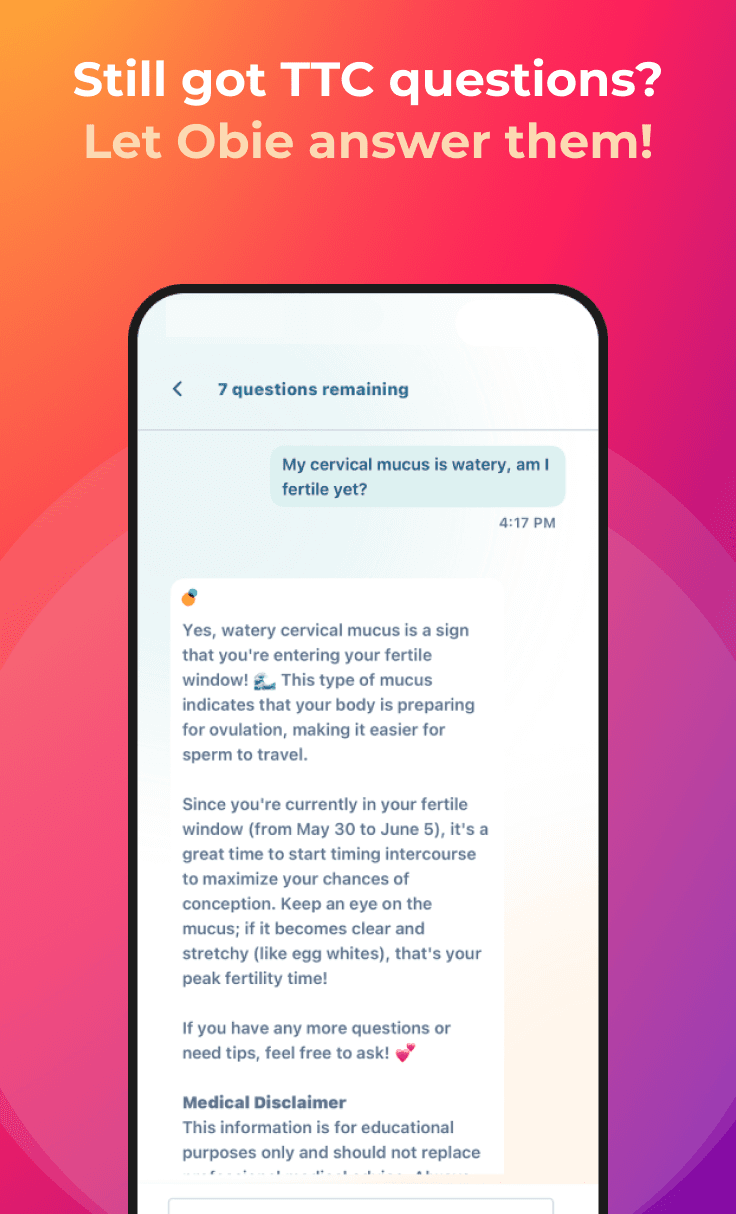The Role of Supplements in Preconception Care: Supporting Fertility and Healthy Development
Obie Editorial Team

When preparing for pregnancy, nutrition plays a critical role in ensuring both fertility and a healthy baby. While a balanced diet provides essential nutrients, supplements can help fill nutritional gaps that may impact fertility or fetal development. By incorporating key supplements into your preconception routine, you can optimize your body’s readiness for conception and improve pregnancy outcomes.
Why Supplements Matter in Preconception Care
Certain vitamins and minerals are crucial during the early stages of pregnancy, often before a person even knows they are expecting. According to Czeizel and Dudas (1992), supplementing with essential nutrients before conception significantly reduces the risk of neural tube defects and other developmental concerns.
During the earliest stages of pregnancy, the neural tube forms within the first few weeks — a period when many individuals may not yet know they are pregnant. This is why taking supplements before conception is so important.
Key Supplements for Fertility and Preconception Health
To prepare your body for pregnancy and support fertility, consider the following essential supplements:
1. Folic Acid (Vitamin B9):
- Folic acid is vital for preventing neural tube defects, such as spina bifida and anencephaly.
- The CDC recommends that individuals trying to conceive take 400-600 mcg of folic acid daily.
- Leafy greens, legumes, and fortified cereals are good dietary sources, but supplements ensure consistent intake.
2. Iron:
- Iron supports oxygen delivery to developing tissues and helps prevent anemia during pregnancy.
- Low iron levels have been linked to reduced fertility and higher risks of preterm birth.
- Consider adding iron-rich foods such as spinach, lentils, and lean meats alongside a supplement if advised by your doctor.
3. Vitamin D:
- Vitamin D plays a crucial role in hormone regulation and immune function, both of which are important for conception.
- Research links low vitamin D levels with reduced fertility in both men and women.
- Consider taking 600-800 IU daily, especially if you have limited sun exposure.
4. Omega-3 Fatty Acids:
- Omega-3s (especially DHA and EPA) support fetal brain and eye development.
- These healthy fats may also help regulate hormones, reduce inflammation, and improve egg quality.
- Sources include fatty fish (like salmon), walnuts, and flaxseed, but supplements ensure consistent intake.
5. Iodine:
- Iodine supports thyroid function, which is essential for hormone regulation and a healthy pregnancy.
- The American Thyroid Association recommends 150 mcg of iodine daily for individuals trying to conceive.
6. Coenzyme Q10 (CoQ10):
- CoQ10 is an antioxidant that may improve egg quality and sperm health, particularly in individuals over 35.
- Studies suggest that CoQ10 can improve mitochondrial function, which powers egg and sperm cells.
7. Zinc:
- Zinc is vital for cell division and DNA synthesis, both critical in early pregnancy development.
- In men, zinc has been shown to improve sperm quality and testosterone production.
8. Choline:
- Choline plays a role in brain and spinal cord development in the early stages of pregnancy.
- While eggs are a great natural source, most prenatal vitamins may not provide enough choline, so a separate supplement may be necessary.
Practical Tips for Adding Supplements to Your Routine
- Start Early: Begin taking supplements at least 3 months before trying to conceive to allow your body to build nutrient reserves.
- Choose a High-Quality Prenatal Vitamin: Select one that includes key nutrients like folic acid, vitamin D, iron, and iodine.
- Consult Your Healthcare Provider: Personal health needs vary, and your doctor can help tailor supplements to suit your unique requirements.
- Be Consistent: Establishing a daily supplement routine can make it easier to maintain optimal nutrient levels.
Final Thoughts
Taking the right supplements before pregnancy is a proactive step that can improve fertility and reduce the risk of birth defects. By combining supplements with a nutrient-rich diet and healthy lifestyle choices, you’ll create the best foundation for a healthy conception and pregnancy journey.
Reference: Czeizel, A. E., & Dudas, I. (1992). Prevention of the first occurrence of neural-tube defects by periconceptional vitamin supplementation. New England Journal of Medicine, 327(26), 1832-1835.








